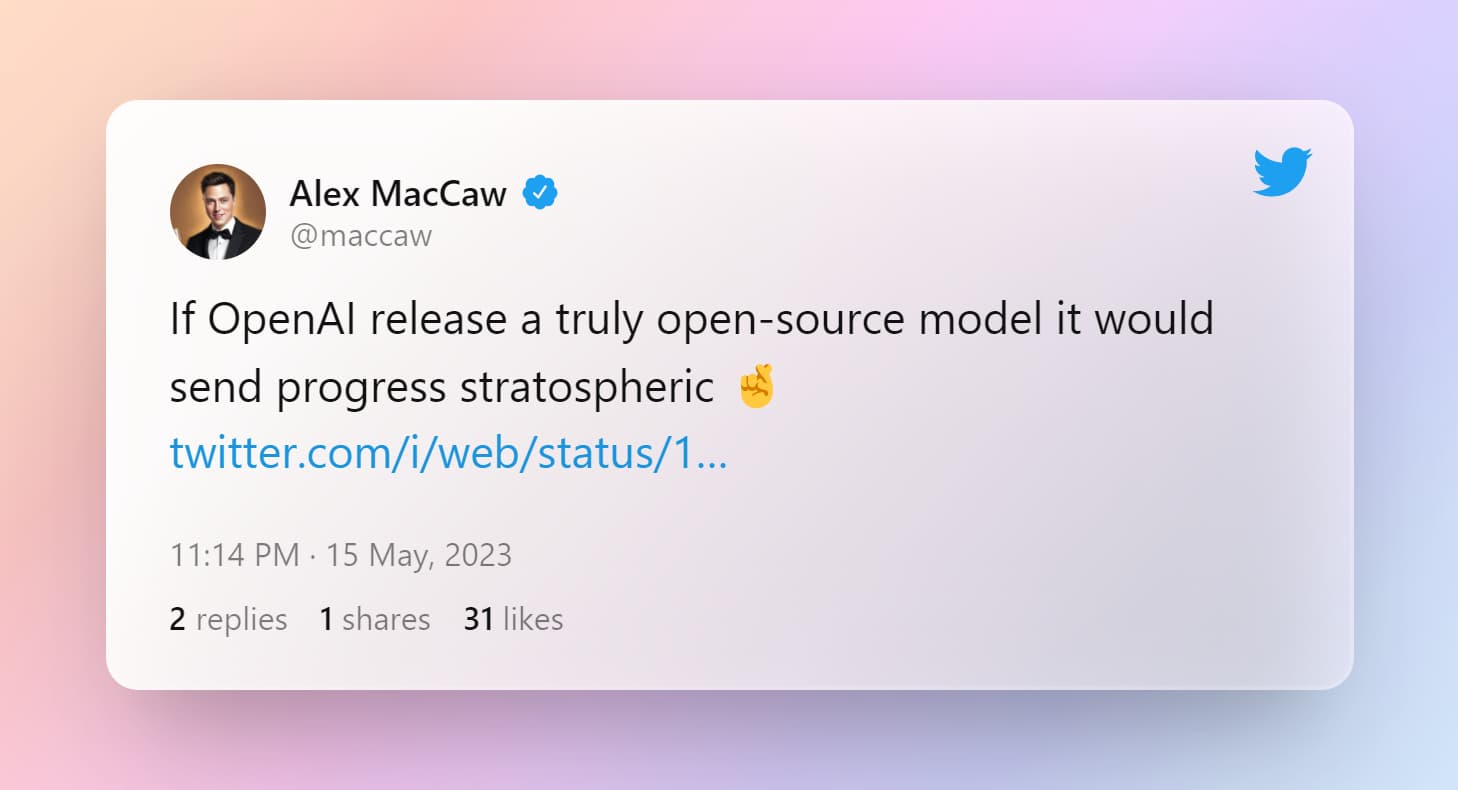OpenAI, the company behind the AI chatbot ChatGPT, is reportedly preparing to release an open-source artificial intelligence (AI) model.

According to a report from The Information on May 16, citing an individual familiar with the matter, OpenAI is taking this step in response to increasing competition from other open-sourced AI models, including those leaked from Meta in February. The report does not mention the specific timeline for the model’s release.
According to sources, it is expected that OpenAI’s open-source model will likely not pose a significant competitive threat to its flagship ChatGPT product. The value proposition of OpenAI lies in its ability to sell access to more advanced and sophisticated models.
The company has been facing strong competition from open-source AI models, notably Meta’s LLaMa. Initially restricted to researchers, LLaMa was entirely leaked by a user on the imageboard site 4chan in late February.
Other open-source models in the market include those from Stability AI, which made its large language models open-source in April, and Databricks’ Dolly 2.0 AI, which was also open-sourced shortly before Stability AI’s release.
Open-source models provide open access to the complete code, granting everyone the right to modify them for any purpose or tailor them to specific needs. Certain companies opt to open-source their software because they believe it can benefit from contributions from external developers.
Moreover, the creators of these models are receiving substantial funding support for their endeavors.AI firm Together announced on May 15 that it had successfully raised $20 million in a seed round.
The funding came from prominent figures in the crypto industry, including Dawn Song, co-founder of Oasis Labs, Alex Atallah, co-founder of OpenSea, and Mary Catherine Lader, COO of Uniswap. Together’s primary objective is to offer open-source generative AI models.
In a separate development earlier in May, a leaked document authored by Luke Sernau, a senior software engineer at Google, highlighted the growing significance of open-source AI models as a substantial threat to the company’s AI initiatives.
According to Sernau, “The uncomfortable truth is, we aren’t positioned to win this arms race, and neither is OpenAI.” He further noted that while Google was preoccupied with its rivalry against OpenAI, open-source AI models swiftly advanced without much attention.
Sernau emphasized that these models surpassed Google’s offerings in terms of speed, customization, privacy, and overall capabilities. In his words, “They are outperforming us in every aspect.”
Related Stories:

